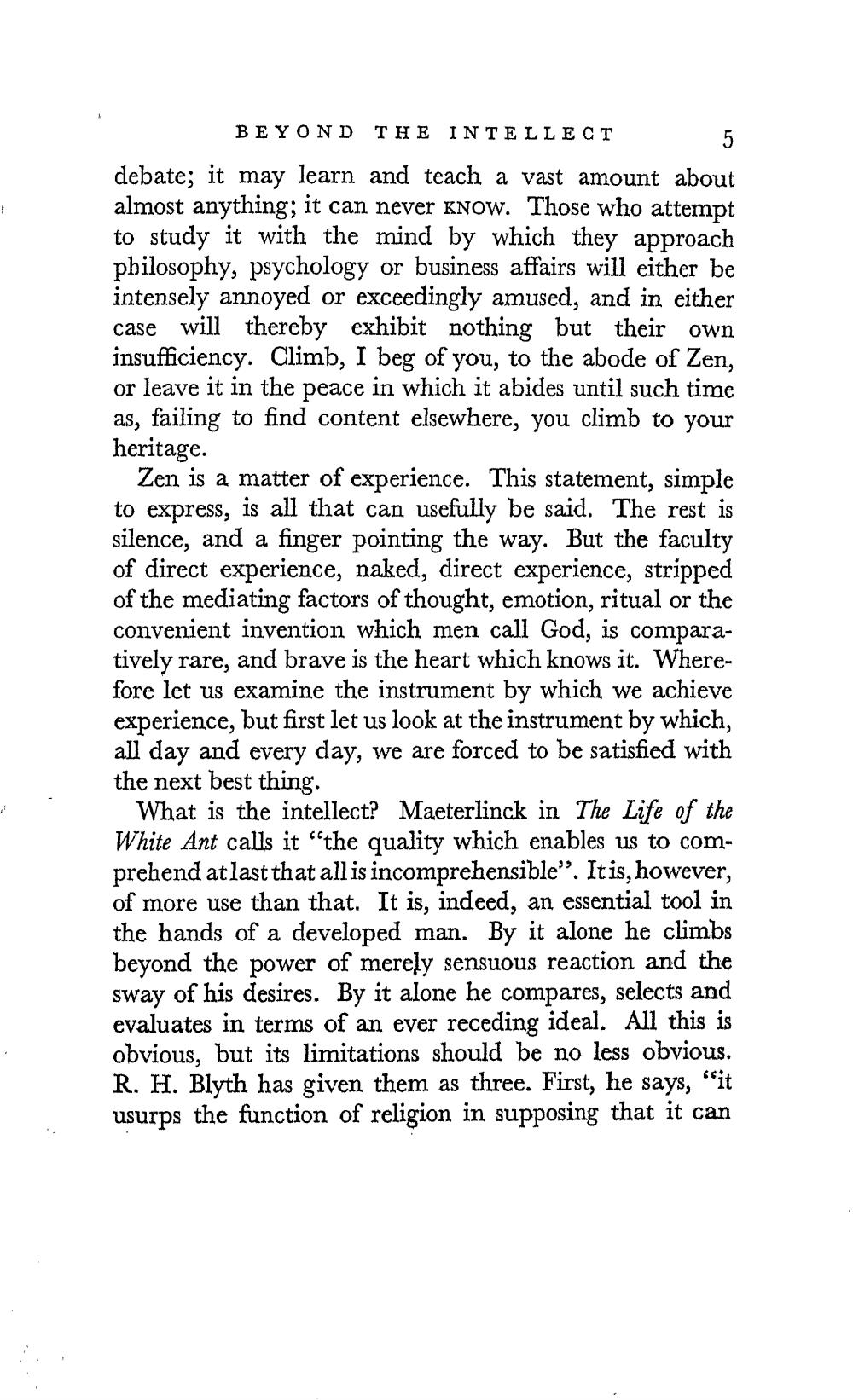________________
BEYOND THE INTELLECT
debate; it may learn and teach a vast amount about almost anything; it can never KNOW. Those who attempt to study it with the mind by which they approach philosophy, psychology or business affairs will either be intensely annoyed or exceedingly amused, and in either case will thereby exhibit nothing but their own insufficiency. Climb, I beg of you, to the abode of Zen, or leave it in the peace in which it abides until such time as, failing to find content elsewhere, you climb to your heritage.
Zen is a matter of experience. This statement, simple to express, is all that can usefully be said. The rest is silence, and a finger pointing the way. But the faculty of direct experience, naked, direct experience, stripped of the mediating factors of thought, emotion, ritual or the convenient invention which men call God, is comparatively rare, and brave is the heart which knows it. Wherefore let us examine the instrument by which we achieve experience, but first let us look at the instrument by which, all day and every day, we are forced to be satisfied with the next best thing.
What is the intellect? Maeterlinck in The Life of the White Ant calls it the quality which enables us to comprehend at last that all is incomprehensible". It is, however, of more use than that. It is, indeed, an essential tool in the hands of a developed man. By it alone he climbs beyond the power of merely sensuous reaction and the sway of his desires. By it alone he compares, selects and evaluates in terms of an ever receding ideal. All this is obvious, but its limitations should be no less obvious. R. H. Blyth has given them as three. First, he says, “it usurps the function of religion in supposing that it can




